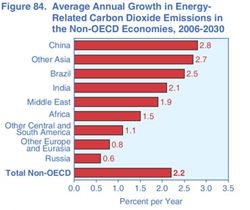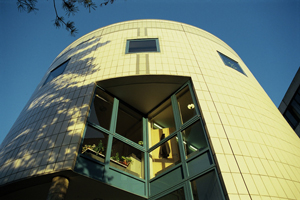The Climate Research Unit at the University of East Anglia, U.K.
(Credit photo: http://www.cru.uea.ac.uk/)
Just before the United Nations Framework Convention on Climate Change — UNFCCC — took place in Copenhagen in mid-December 2009, experts at the University of East Anglia’s world-leading Climatic Research Unit were accused of manipulating data on global warming in the “Climategate” scandal over leaked emails.
The UK government’s former chief scientist — Sir David King — has now said that a foreign intelligence agency was probably behind email hacking at the Climate Research Unit in East Anglia. Sir David said the co-ordinated hacking and the selective leaking of the unit’s emails going back 13 years bore all the hallmarks of a skilled intelligence operation from a foreign government rather than opportunist hackers. He said, “It’s the sophistication of the operation. A very clever nerd can cause a great deal of disruption and obviously make intelligence services very nervous, but a sophisticated intelligence operation is capable of yielding the sort of results we’ve seen here.”
Sir David King said more than 1,000 emails and 2,000 documents were stolen from a back-up server used by the University of East Anglia since 1996, and recent links were carefully timed to destabilize the Copenhagen climate change summit. This represents a small fraction of the total number of emails for the period from 1996 to 2009, suggesting the information leaked had been selected for the most incriminating phrases relating to possible scientific misconduct and breaches of the Freedom of Information Act.
RealClimate
The existence of the stolen emails came to light in late November 2009 when someone tried to load them onto the RealClimate Internet site run by climate scientists, including Gavin Schmidt of NASA’s Goddard Institute for Space Studies. Dr Schmidt said that hackers used a bonafide computer in Turkey as a proxy server but the attack could have been launched from any other computer located elsewhere in the world. He attempted to disable the hacking operation as it was taking place, but was prevented several times before finally succeeding.
The hackers had penetrated deep into the website’s database software, which required considerable skill and knowledge. An opportunistic hacker would not have had such skills, according to Dr Schmidt, including the use of remote-monitoring tools and high-level access capability.

Russians, Chinese or Oil-Interests?
Two days after the attempted RealClimate hack, the compendium file of stolen emails appeared on a server used by a company called Tomcity operating from the Russian city of Tomsk in Siberia.
However, again, the uploading could have been done by anyone, skillfully controlling a proxy server elsewhere in the world. Experts have suggested that loading the email compendium file onto a Tomsk computer server may have been a deliberate attempt to lay a trail to the door of the Russian intelligence service, which has since denied any involvement in the hacking incident. Some expert analysts in Russia have said that China had more to gain from destabilizing the Copenhagen conference than Russia.
China has the world’s fastest rising carbon emission rates and had an obvious motive for ensuring that no binding agreement or treaty emerged from Copenhagen. However, it cannot be ruled out that powerful oil interests in the West — above all in the United States — had as much an interest, as did Beijing, in seeing Copenhagen founder.
———-
*** Posted on March 16th, 2010


